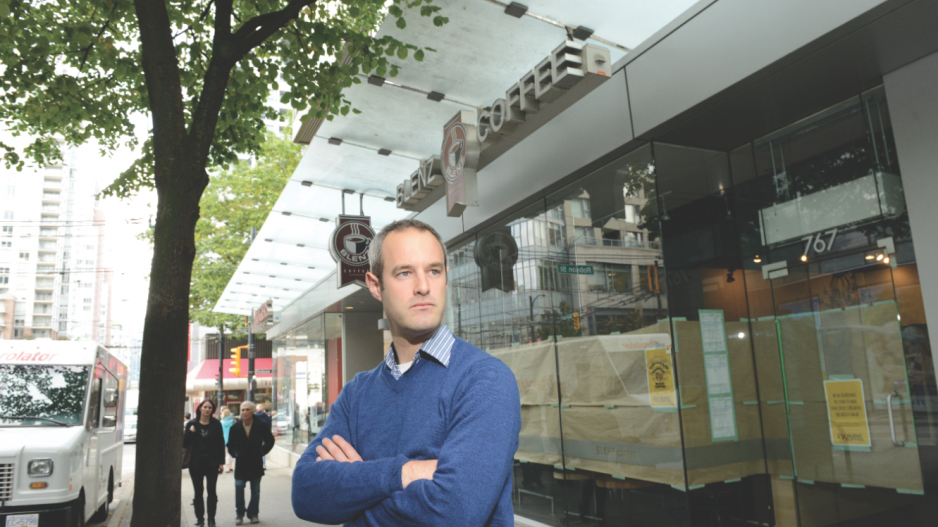Entrepreneur Wayne Taylor believes that B.C. needs to draft a law to protect franchisees because those small-business owners are at a huge disadvantage when they have disputes with their franchisor.
The former Blenz Coffee franchisee, along with two other former Blenz franchisees, is suing his former franchisor for various alleged actions that Taylor says cost him about $130,000 in lost franchise value.
B.C. does not have a law governing exactly what information franchisors must disclose to potential franchisees. The result is that small-business owners, such as Taylor, have a bigger challenge in court. Taylor, for example, must now prove using common law that Blenz acted in bad faith, according to lawyers such as Boughton Law Corp. associate Tony Wilson and Henshall Scouten Barristers and Solicitors associate Matthew Jackson.
Were B.C to have a franchise act, as do five other Canadian provinces, Taylor would have an easier time in court because he could point to a legal document outlining exactly what Blenz was supposed to reveal, the lawyers said.
Taylor claims that when he signed an agreement to buy a Blenz franchise, in April 2008, Blenz led him to believe that it would renew his five-year lease, at 767 Seymour Street, when the lease expired.
Blenz did not renew the lease and denied in a court document that it promised to do so. Taylor tried to sell his franchise, but purchase agreements kept falling through because Blenz did not approve any of the buyers he lined up, he told Business in Vancouver.
Blenz, in its response to Taylor’s lawsuit, said that it was not aware of potential buyers and in any case was not obligated to approve a sale.
Taylor said that he sold his franchise in 2013 for $50,000, about $130,000 less than he had originally paid.
“I cried myself to sleep,” Taylor said. “There’s no way to explain that feeling. That was my lowest point. Then I got up and was resolved to stop this stuff from happening.”
The British Columbia Law Institute (BCLI) circulated a consultation paper to industry stakeholders in April 2013 and set an October 2013 deadline for input.
It then released a report in March that recommended that B.C. draft a franchise act.
The B.C. government came on board in September, with Justice Minister Suzanne Anton telling BIV that she seeks public feedback on the BCLI report until December 10.
“Extensive consultation has been done to date by the Uniform Law Conference of Canada and the BCLI,” she said. “However, this round of consultation will ensure that the B.C. government has received input from interested stakeholders and members of the public.”
The proposed legislation would regulate the sale of franchises, stipulate exactly what disclosure is required before a sale is completed and provide more legal rights for franchisees to help parties resolve disputes, Anton said.
Wilson, who wrote the book Buying a Franchise in Canada, told BIV that franchise acts in other provinces are particularly helpful to franchisees in the first two years of being in business.
“Franchise legislation helps if there’s been a misrepresentation in the sales process,” he said. “Franchisees can get out of the deal and get their money back if they discover a misrepresentation in the first two years.”
Franchisors in the five provinces that have franchise acts must reveal things such as whether they have ever been sued – either corporately or personally as directors.
Failing to reveal such information would give the franchisee the ability to ask to rescind the contract.
The dispute would likely still go to court, but the franchisee would have a much firmer foundation to make his or her case, Wilson said.
“Many clients can’t afford the legal fees to fight a franchisor in court,” Wilson said. “If there was a remedy such as rescission, I think it lowers the bar for franchisees and makes it worth it to go to court.”




